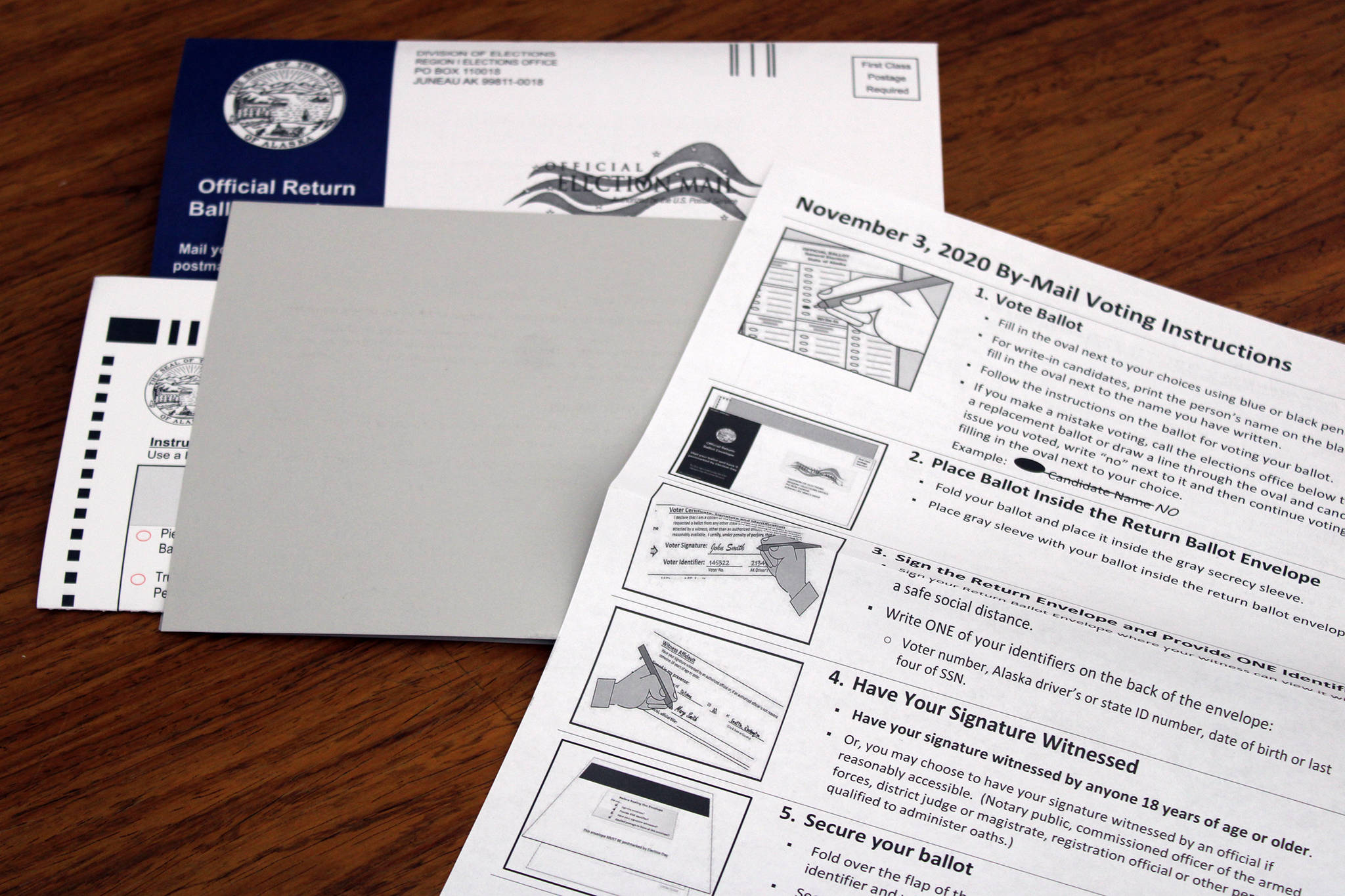By BECKY BOHRER
Associated Press
The Alaska Supreme Court on Monday affirmed a lower court ruling eliminating witness requirements for absentee ballots for the general election.
The brief decision came shortly after the state Supreme Court heard arguments in the case. A full opinion is expected later.
Last week, Superior Court Judge Dani Crosby ruled enforcement of the witness requirements during the coronavirus pandemic “impermissibly burdens the right to vote.” She waited to put the order into effect, to allow the Supreme Court to weigh in.
The two sides in the matter had agreed to a stay pending Supreme Court review, with the understanding the Division of Elections would make preparations to carry out the order should the state lose the case.
Department of Law spokeswoman Maria Bahr said the department respects the court’s decision.
Laura Fox, an attorney for the state, had asked the Supreme Court to keep in place the witness requirements, arguing that a change in rules, when voting is already underway, “will cause confusion and distrust.”
More than 110,000 absentee ballots have been sent to voters who requested them, with nearly 11,000 already returned, the division says.
During arguments, Fox said the division typically is engaged in voter outreach for months but in this case faces having to “re-educate voters in direct contradiction of the printed materials and past practice in just a few weeks.”
“This is telling the voters, yeah, we know you have all of these printed materials saying that you have to do it one way but … just ignore that,” she said.
Justice Susan Carney responded: “Isn’t that the message, ‘ignore it?’ How hard is that?”
The case was brought by the Arctic Village Council; League of Women Voters of Alaska; and two individuals. Their attorneys have argued the witness requirement is unconstitutional during the pandemic and a bar to voting for those who don’t live with someone who is at least 18 and able to serve as a witness.
Natalie Landreth, an attorney for the plaintiffs, noted the unusual circumstances, with arguments held via video conferencing.
“One year ago, none of us could imagine that I would be in what is frankly my kitchen arguing an Alaska Supreme Court case. And this is how radically the world has changed and how quickly,” she said.
The witness requirement is “creating a burden that doesn’t need to be there,” Landreth said.

